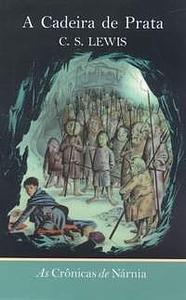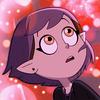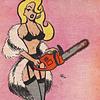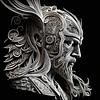You need to sign in or sign up before continuing.
Take a photo of a barcode or cover
slow-paced
Plot or Character Driven:
Character
Strong character development:
No
Loveable characters:
No
Diverse cast of characters:
Yes
Flaws of characters a main focus:
N/A
I adore this book. I read it for a class in college and ended up naming my dog Puddleglum. The story is so wonderful, and the twists along the way with the courage of each character really works. It’s so endearing and engaging and classic. Lots of symbolism.
adventurous
hopeful
reflective
fast-paced
Plot or Character Driven:
A mix
Strong character development:
Yes
Loveable characters:
Complicated
Diverse cast of characters:
Yes
Flaws of characters a main focus:
Complicated
“I’m on Aslan’s side even if there isn’t any Aslan to lead it. I’m going to live as like a Narnian as I can even if there isn’t any Narnia.”
adventurous
emotional
funny
hopeful
medium-paced
medium-paced
Plot or Character Driven:
Plot
Strong character development:
Complicated
Loveable characters:
No
Diverse cast of characters:
No
Flaws of characters a main focus:
Yes
adventurous
mysterious
reflective
medium-paced
Plot or Character Driven:
Character
Strong character development:
Yes
Loveable characters:
Yes
Diverse cast of characters:
Yes
Flaws of characters a main focus:
No
I'm not a big fan of the first half of this novel, in which the three protagonists -- a returning Eustace, his classmate Jill, and a rather miserable creature named Puddleglum -- are very nasty toward one another as they trek across the Narnian landscape. (Beyond just not being all that pleasant to read, it tends to undo a lot of our old hero's character development from the previous volume too.) But they grow more tender and loyal as the story unfolds, and the dark underworld at the end of their journey is a fascinating addition to our understanding of this realm. Really, one of the greatest strengths of the overall Narnia series is how each individual 'Chronicle' manages to stay connected with the others while practically reinventing the setting and the shape of the plot, so as to never rehash an earlier adventure.
As ever, the level of Christian allegory here can be pretty exclusionary; if you take as a metaphor for atheism the witch's taunts that Aslan and the sun aren't real because they can't be seen underground, anyone who similarly disbelieves will seem either wicked or foolish or both. Her torturous demand for the faithful to recant what they know in their hearts is also a fairly twisted version of the actual dynamic, which sees Christians persecuting and marginalizing the rest of the world far more than the opposite. But on the other hand, if you can manage to set all that subtext aside, the scene itself is a creepy display of gaslighting that is shockingly effective at demonstrating the antagonist's villainy.
It's ultimately hard not to be charmed by author C. S. Lewis, and there's some interesting thematic material that he likely hasn't intended but nevertheless feels quite welcoming to a queer reading of the text, from the children proclaiming that they've got to appear gay to their companion's insistence that he's a Marsh-wiggle and not a man. Those words may have carried different connotations back in 1953, but with a 21st-century perspective they invite a deeper consideration of gender than these books usually provide. Wrapped in a kidnapped-prince narrative that recalls fairy tales and ancient myths, this title is fun for all ages and proves that the writer still has plenty to say even without any of the original Pevensie siblings.
[Content warning for sexism, fatphobia, and alcohol abuse.]
--Subscribe at https://patreon.com/lesserjoke to support these reviews and weigh in on what I read next!--
Find me on Patreon | Goodreads | Blog | Twitter
As ever, the level of Christian allegory here can be pretty exclusionary; if you take as a metaphor for atheism the witch's taunts that Aslan and the sun aren't real because they can't be seen underground, anyone who similarly disbelieves will seem either wicked or foolish or both. Her torturous demand for the faithful to recant what they know in their hearts is also a fairly twisted version of the actual dynamic, which sees Christians persecuting and marginalizing the rest of the world far more than the opposite. But on the other hand, if you can manage to set all that subtext aside, the scene itself is a creepy display of gaslighting that is shockingly effective at demonstrating the antagonist's villainy.
It's ultimately hard not to be charmed by author C. S. Lewis, and there's some interesting thematic material that he likely hasn't intended but nevertheless feels quite welcoming to a queer reading of the text, from the children proclaiming that they've got to appear gay to their companion's insistence that he's a Marsh-wiggle and not a man. Those words may have carried different connotations back in 1953, but with a 21st-century perspective they invite a deeper consideration of gender than these books usually provide. Wrapped in a kidnapped-prince narrative that recalls fairy tales and ancient myths, this title is fun for all ages and proves that the writer still has plenty to say even without any of the original Pevensie siblings.
[Content warning for sexism, fatphobia, and alcohol abuse.]
--Subscribe at https://patreon.com/lesserjoke to support these reviews and weigh in on what I read next!--
Find me on Patreon | Goodreads | Blog | Twitter






